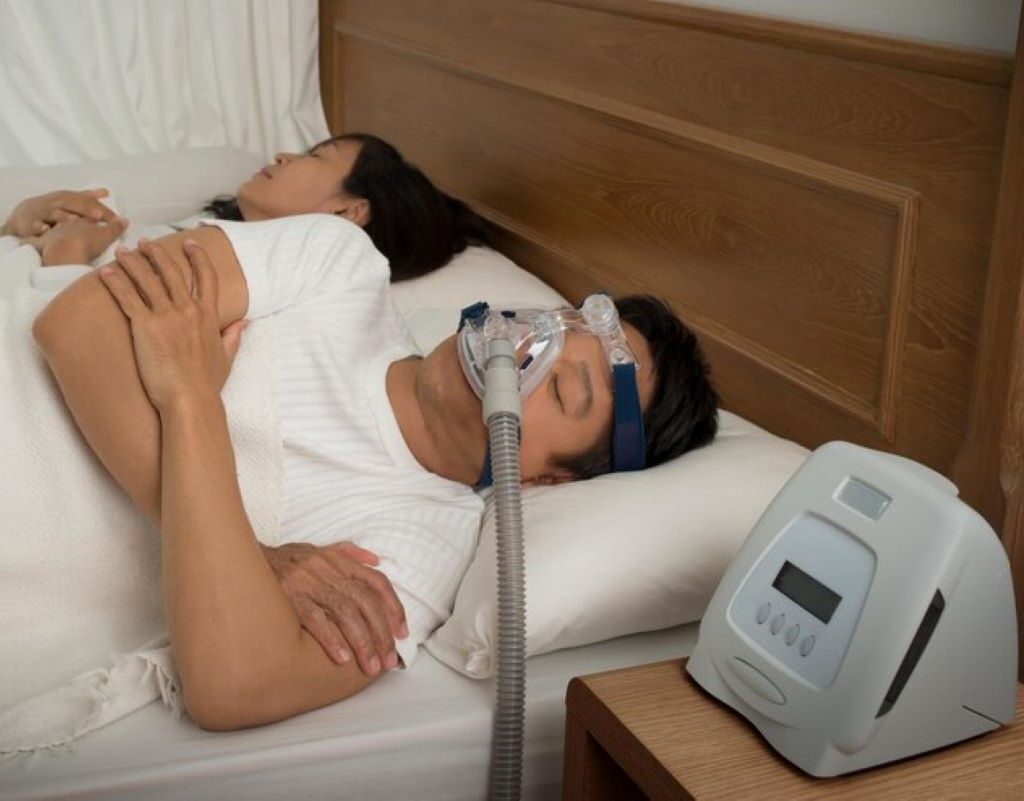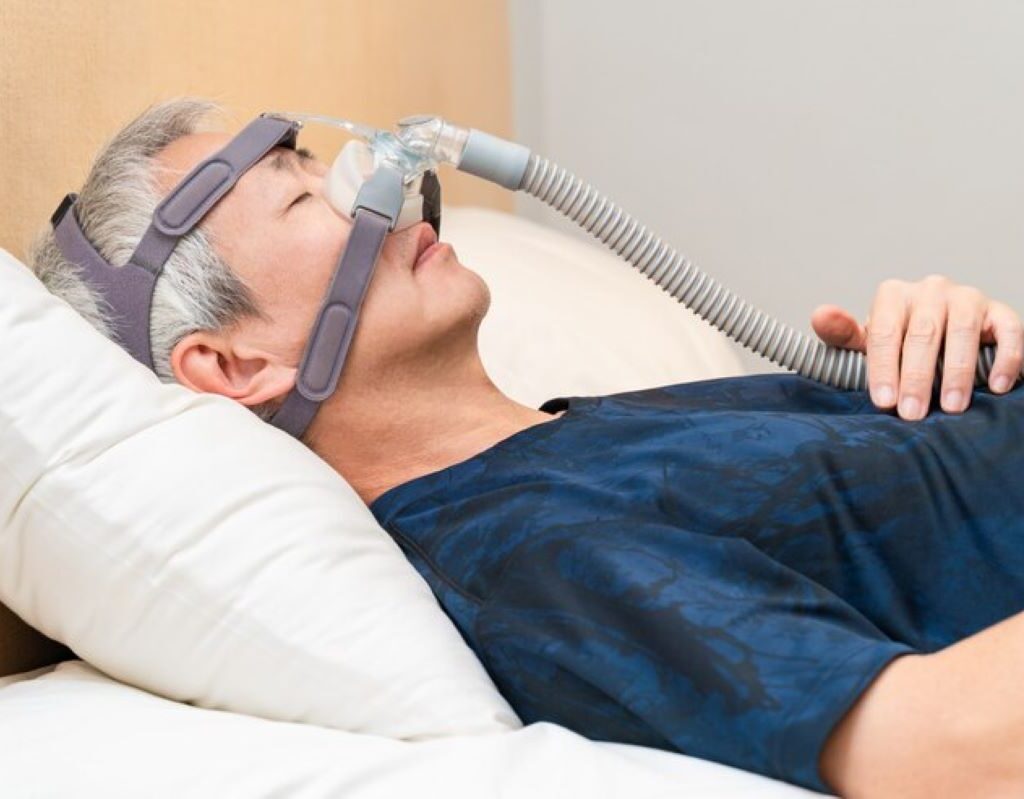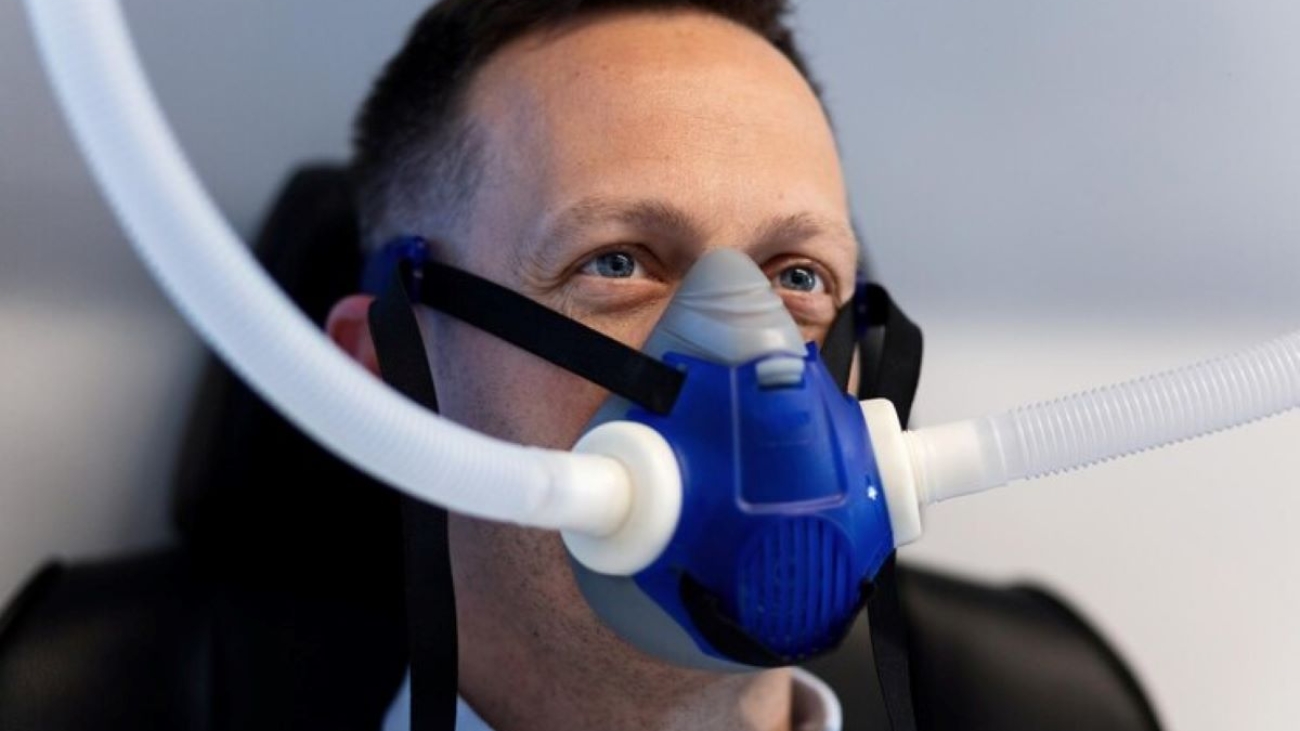What is CPAP Therapy and Why is Choosing the Right Mask Important?
CPAP therapy is the leading treatment for obstructive sleep apnoea, a condition that affects millions of people around the world. This treatment involves using a machine that delivers a steady stream of air through a mask, keeping your throat muscles open and preventing breathing interruptions during sleep.
The success of your CPAP therapy depends greatly on one key factor: the mask you choose. Even if you have the latest and most advanced CPAP machine, it won’t be effective if you’re not using the right mask. An ill-fitting or uncomfortable mask can result in:
- Air leaks that reduce the effectiveness of the therapy
- Discomfort leading to discontinuation of treatment
- Skin irritation and pressure sores
- Disrupted sleep for both you and your partner
Choosing the right CPAP mask is essential for successful therapy and patient comfort. Your mask is the crucial link between the life-changing benefits of CPAP therapy and your nightly sleep experience. By selecting a mask that suits your facial structure, sleeping habits, and breathing patterns, you’re making an investment in consistent therapy adherence and an improved quality of life.
Finding the perfect CPAP mask requires knowledge of the different options available and an understanding of how various brands prioritise comfort, seal, and durability.
What Are the Different Types of CPAP Masks Available in the Market?
The types of CPAP masks available today cater to diverse breathing patterns and comfort preferences. Understanding each option helps you make an informed decision that aligns with your specific needs. Here’s a breakdown of the different types:
Nasal Pillow Masks
Nasal pillow masks feature small cushions that seal directly around your nostrils. These lightweight options offer:
Benefits:
- Minimal facial contact reduces claustrophobia
- Clear field of vision for reading or watching television
- Ideal for active sleepers who change positions frequently
- Less prone to leaving marks on your face
Drawbacks:
- Unsuitable if you breathe through your mouth during sleep
- May cause nasal irritation with higher pressure settings
- Limited effectiveness for severe sleep apnoea cases
Full-Face Masks
Full-face masks cover both your nose and mouth, providing comprehensive coverage. Key characteristics include:
Benefits:
- Perfect for mouth breathers or those with nasal congestion
- Effective across all pressure ranges
- Accommodates various sleeping positions
Drawbacks:
- Bulkier design may feel restrictive
- Higher risk of air leaks around the seal
- Can interfere with glasses or cause facial marks
Nasal Masks
Nasal masks cover your entire nose area, striking a balance between coverage and comfort:
Benefits:
- Stable seal with moderate contact area
- Suitable for higher pressure requirements
- Less bulky than full-face alternatives
Drawbacks:
- Requires nasal breathing capability
- May shift during sleep movement
For those looking to choose the right mask, it is important to consider factors such as your breathing style and comfort preferences. More insights on how to select the most suitable CPAP mask can be found in this comprehensive guide on how to choose a CPAP mask.
Which Leading Brands Are Dominating the CPAP Mask Industry?
The top CPAP mask brands have established their dominance through decades of innovation and patient-focused design. These manufacturers consistently deliver products that balance comfort, effectiveness, and durability.
1. ResMed
ResMed stands as the global leader in sleep therapy solutions, renowned for their AirFit series that features advanced cushion technology and minimal contact design. Their masks incorporate QuietAir vent technology, which reduces noise by 89% compared to traditional designs, making them ideal for light sleepers and their partners.
2. Philips Respironics
Philips Respironics has carved out its niche with the revolutionary DreamWear series, offering under-the-nose nasal cushions that eliminate red marks and pressure points on the nose bridge. Their innovative top-of-head tube connection allows for greater freedom of movement during sleep.
3. Fisher & Paykel
Fisher & Paykel brings New Zealand engineering excellence to the market with their Evora and Simplus ranges. They specialise in compact, lightweight designs that use soft silicone seals and innovative headgear systems to minimise facial contact whilst maintaining an effective seal.
4. Löwenstein Medical
Löwenstein Medical represents German precision engineering, focusing on ergonomic designs that accommodate various facial structures. Their Joyce series features magnetic clips and colour-coded sizing systems that simplify the fitting process for both patients and healthcare providers.
Each brand targets specific user preferences, from ResMed’s quiet operation to Fisher & Paykel’s minimal contact philosophy, ensuring you can find a mask that matches your individual sleep therapy requirements.
What Are the Most Recommended Models from Each Brand?
The best CPAP masks 2023 showcase remarkable innovations from leading manufacturers, each offering distinct advantages for different user profiles. These top-performing models have earned their reputation through extensive clinical testing and positive patient feedback.
ResMed AirFit F20 (Full-Face)
The ResMed AirFit F20 review consistently highlights its revolutionary InfinitySeal cushion technology, which adapts to your facial contours throughout the night. This full-face mask features:
- Magnetic headgear clips for effortless attachment and removal
- Plush headgear that distributes pressure evenly across your head
- Quick-release elbow allowing you to disconnect without removing the entire mask
The F20 excels for mouth breathers and those experiencing nasal congestion, delivering reliable seal performance across various sleeping positions.
Philips Respironics DreamWear (Nasal)
DreamWear’s unique under-the-nose design eliminates the traditional nasal bridge contact point that causes discomfort for many users. Key features include:
- Top-of-head hose connection preventing tube drag and tangling
- Minimal facial contact reducing red marks and pressure sores
- Soft silicone nasal cushions available in multiple sizes
Fisher & Paykel Evora (Compact)
The Evora’s compact profile makes it ideal for active sleepers who move frequently during the night. Its innovative design incorporates:
- Compact nasal seal that sits comfortably under the nose
- Easy-clip headgear system for quick adjustments
- Glider strap technology that moves with you as you sleep
How Can Users Choose a Suitable CPAP Mask Based on Their Needs?
Choosing a CPAP mask requires careful consideration of your individual sleep patterns and physical characteristics. Your breathing habits play a fundamental role in determining the most suitable mask type for your therapy.
Consider Your Breathing Habits
- Mouth breathing: If you tend to breathe through your mouth while sleeping, full-face masks are the best option for you. These masks cover both your nose and mouth, allowing for natural breathing.
- Nasal breathing: If you primarily breathe through your nose during sleep, nasal masks or nasal pillow systems are ideal. These options provide targeted therapy with minimal contact on your face.
Take Your Sleeping Position into Account
Your sleeping position has a significant impact on which mask will be most comfortable for you:
- Side sleepers: If you usually sleep on your side, consider using nasal pillow masks or compact designs that won’t get pressed against pillows.
- Back sleepers: Back sleepers can comfortably use any type of mask, including larger full-face options.
- Stomach sleepers: Stomach sleepers need low-profile masks to prevent them from shifting around when they move during sleep.

Think About Your Facial Structure
When selecting a CPAP mask, it’s important to consider certain aspects of your facial structure:
- Beard or facial hair compatibility: Full-face masks may have difficulty creating a proper seal if you have a beard or facial hair.
- Claustrophobia concerns: If you feel claustrophobic or restricted by traditional masks, nasal pillows offer the least constricting feeling.
- Skin sensitivity: If you have sensitive skin, look for masks with softer cushion materials to reduce the risk of irritation.
Consider Your CPAP Pressure Settings
The pressure requirements from your CPAP device also affect which mask is best for you. Higher pressure settings often work better with full-face masks that distribute air more evenly, while lower pressures suit nasal-only options perfectly.
Take into Account Your Activity Level During Sleep
Your activity level during sleep matters too. If you’re a restless sleeper who moves around frequently at night, you’ll need secure headgear systems to keep the mask in place. On the other hand, if you’re a calm sleeper who doesn’t move much during sleep, lighter and less restrictive designs that prioritise comfort over maximum stability may be suitable for you. Click here to get more about Pros and Cons of CPAP masks.
Why Does Proper Fit Matter So Much With CPAP Masks?
The importance of proper fit in CPAP therapy cannot be overstated – your mask serves as the critical connection between your CPAP machine and your airways. When your mask fits correctly, it creates an airtight seal that maintains the prescribed pressure levels throughout your sleep cycle.
The Impact of Air Leaks on CPAP Therapy
Air leaks represent one of the most common causes of CPAP therapy failure. These leaks occur when gaps exist between your mask and facial contours, allowing pressurised air to escape rather than reaching your airways. The consequences extend beyond simple discomfort:
- Reduced therapy effectiveness – Leaked air means lower pressure delivery to your airways
- Sleep disruption – Whistling sounds and air drafts can wake you repeatedly
- Skin irritation – Poorly fitted masks create pressure points and chafing
- Eye irritation – Escaped air can blow directly into your eyes, causing dryness
The Role of Your CPAP Machine in Managing Leaks
Your CPAP machine compensates for detected leaks by increasing pressure output, but this creates a cycle where higher pressures worsen the leak problem. A properly fitted mask eliminates this issue entirely, ensuring you receive consistent therapeutic pressure.
How Mask Fit Affects Seal Quality
The seal quality depends on multiple contact points around your nose, mouth, or both, depending on your mask type. Even minor adjustments to headgear tension or mask positioning can dramatically improve seal integrity. You’ll know your mask fits properly when you can breathe comfortably without feeling excessive pressure on your face, yet experience no air leaks during normal sleep movements.
What Should Users Know About the Costs Involved With Getting a CPAP Mask?
CPAP mask costs vary significantly depending on the type and brand you choose. Understanding these price differences helps you make an informed decision that balances your budget with your therapy needs.
Types of CPAP Masks and Their Price Ranges
- Nasal pillow masks: Typically represent the most affordable option, ranging from £60 to £150. These minimal-contact designs use fewer materials, which keeps manufacturing costs lower whilst still delivering effective therapy for many users.
- Nasal masks: Fall into the mid-range category, usually priced between £80 and £180. The additional cushioning and frame materials required for these masks contribute to their higher cost compared to nasal pillows.
- Full-face masks: Command premium pricing, typically ranging from £120 to £250. Their complex design incorporates larger cushions, more sophisticated headgear systems, and additional sealing components to cover both nose and mouth effectively.
Factors Influencing CPAP Mask Pricing
Several factors influence these pricing structures:
- Brand reputation: Established manufacturers like ResMed and Philips Respironics often charge premium prices for their proven technology
- Material quality: Silicone cushions and advanced fabrics increase production costs
- Design complexity: Masks with multiple adjustment points and innovative features require higher investment
- Research and development: Companies pass innovation costs onto consumers through pricing
Additional Costs to Consider
You should also budget for replacement components. Cushions typically need replacing every 3-6 months (£20-£40), whilst headgear lasts 6-12 months (£15-£30). These ongoing costs represent essential investments in maintaining your therapy’s effectiveness.
It’s worth noting that the overall success of CPAP therapy can be influenced by various factors, including user comfort and mask fit. Research has shown that proper fit and comfort can significantly affect compliance with CPAP therapy, making it crucial to consider these elements when selecting a mask.
How Can Users Ensure Their CPAP Masks Last Long While Staying Clean?
Maintaining CPAP masks requires consistent daily habits that protect both your investment and your health. Your mask components need different cleaning frequencies to function optimally and prevent bacterial growth that could compromise your respiratory health.
Daily Cleaning Routine
Every morning, disassemble your mask and wash the cushion, frame, and headgear in warm soapy water. You should use mild, fragrance-free soap to avoid skin irritation and material degradation. Rinse thoroughly and air-dry all components before reassembling.
Weekly Deep Cleaning
Once weekly, soak your mask parts in a vinegar solution (one part white vinegar to three parts water) for 30 minutes. This removes mineral deposits and eliminates stubborn bacteria that daily washing might miss.
Component Replacement Schedule
Different mask parts require replacement at specific intervals:
- Cushions: Every 2-4 weeks
- Headgear: Every 3-6 months
- Frame: Every 6-12 months
Storage Best Practices
Store your clean, dry mask in a breathable container away from direct sunlight. Avoid plastic bags, which trap moisture and encourage bacterial growth. Keep spare cushions and headgear on hand to maintain uninterrupted therapy when replacements are needed.
Regular maintenance extends your mask’s lifespan significantly whilst ensuring optimal seal performance and hygiene standards throughout your CPAP therapy journey. This is crucial since the overall longevity of your equipment, including the CPAP machine itself, can also be influenced by how well you maintain it. For instance, a well-maintained CPAP machine can last several years, making proper care essential.

Which Brand Would Be Ideal For You Based On Your Profile?
Your ideal CPAP mask brand depends entirely on your specific sleep patterns and comfort preferences. ResMed excels for users prioritising advanced technology and leak prevention, whilst Philips Respironics suits those seeking innovative designs like under-the-nose positioning. Fisher & Paykel appeals to users wanting minimal facial contact with their compact options.
Consider these profiles:
- Active sleepers: ResMed’s secure fitting systems
- Claustrophobic users: Fisher & Paykel’s minimalist designs
- Comfort-focused individuals: Philips’ soft-touch materials
- Budget-conscious buyers: Compare entry-level models across brands
Top CPAP Mask Brands Compared: Which One Suits You Best? The answer lies in matching your breathing style, sleep position, and comfort requirements with each brand’s strengths. Test different options through your healthcare provider to find your perfect fit.
FAQs About CPAP Therapy and Choosing the Right Mask
CPAP therapy treats obstructive sleep apnea by delivering a steady stream of air through a mask to keep airways open during sleep.
2. Why is choosing the right CPAP mask important?
The mask ensures therapy effectiveness, prevents air leaks, and maintains comfort, which is crucial for consistent use and quality sleep.
3. What are the main types of CPAP masks?
The main types are nasal pillow masks, nasal masks, and full-face masks, each designed for different breathing styles, comfort levels, and sleep positions.
4. Which CPAP mask brands are most popular?
Leading brands include ResMed, Philips Respironics, Fisher & Paykel, and Löwenstein Medical, each offering unique features for comfort and therapy efficiency.
5. How can I choose the right CPAP mask for me?
Consider your breathing habits, sleeping position, facial structure, pressure requirements, and activity level during sleep to select a suitable mask.
6. Why does proper mask fit matter?
A proper fit creates an airtight seal, prevents air leaks, reduces skin irritation, and ensures the CPAP machine delivers the prescribed pressure effectively.
7. What are the typical costs of CPAP masks?
Nasal pillow masks range from £60-150, nasal masks £80-180, and full-face masks £120-250. Replacement cushions and headgear add ongoing costs.
8. How should I clean and maintain my CPAP mask?
Daily cleaning with mild soap, weekly vinegar soak, and scheduled component replacement (cushions: 2-4 weeks, headgear: 3-6 months) help maintain hygiene and durability.
9. Which brand should I choose based on my profile?
Active sleepers may prefer ResMed, claustrophobic users Fisher & Paykel, comfort-focused users Philips Respironics, and budget-conscious buyers should compare entry-level options across brands.

